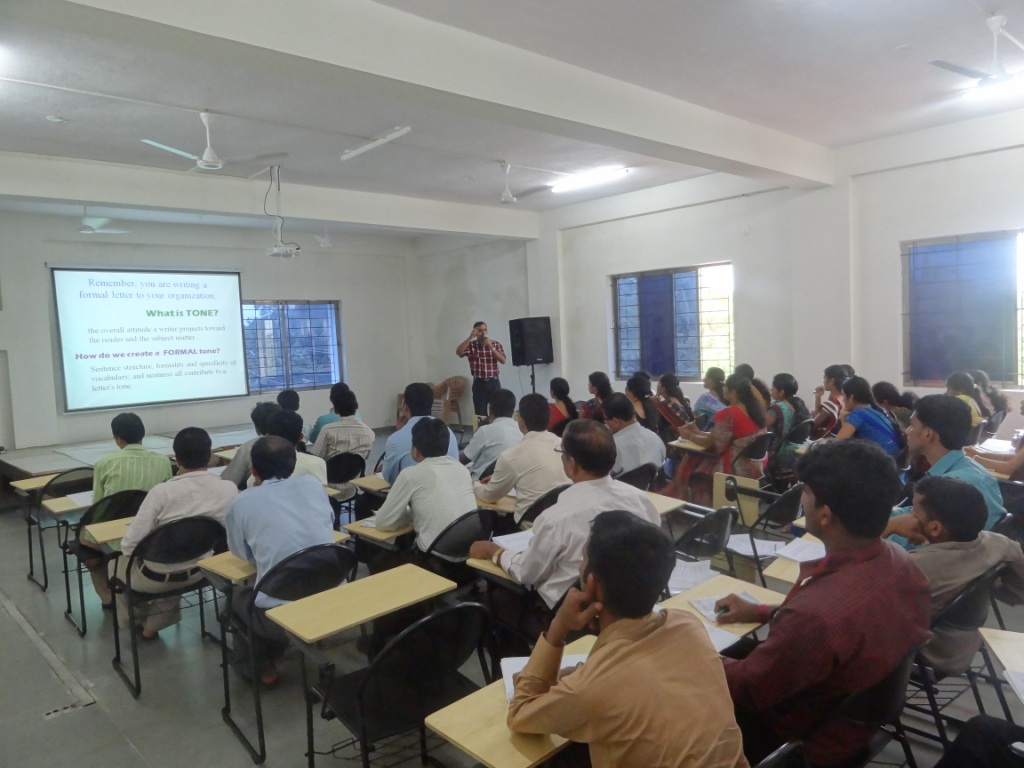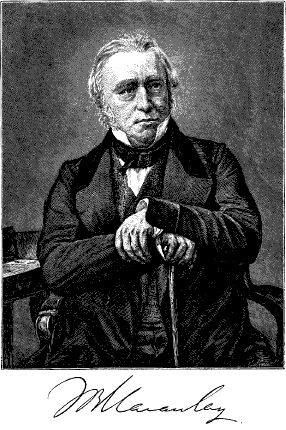How skilling people can be more effective than government Doles!
Hon. Prime ministers recent thrust on National skill Development could be a game changer!
We are sitting on a huge demographic dividend, basically a crest of young populus, who would, if educated and skilled right, pull a nation out into massive growth and development.
This happened with England in 17th century and USA in the 20th.
Whats the idea?
The idea is to skill, rather than supremely educate the mass of people who'd drop out at various stages in the education pyramid.
So at the base of the pyramid would be primary schooling, then the secondary, followed by professional courses and the doctorates.
Naturally, for myriad reasons typically afflicting a poor developing country, not all choose to be engineers or doctors.
The guys and gals who drop out at 12th and 10th for eg, if aptly skilled, can contribute to the workforce, albeit at lower levels, and help themselves.
The skills may be driving, weaving, basic electronics, chip design, food processing or any thing in between.
United states has reportedly 3000 skilled apprenticeships programs and the like, making sure every american gets productive without necessarily having to acquire formal degrees and schooling.
Edison, for instance was barely educated, while Bill gates famously dropped out of Harvard.
Perhaps its a typically american way.
On recent visit to Thailand, for example, i found that this fledgling nation with miserable education and literacy standards when compared to India had developed itself and provided its peoples with all the amenities and comforts of modern life.
How did it do it?

Well government sponsors Skill development programs at all levels of school and college dropping outs, mainly into tourism sector, and all of them are actively employed thereafter.
This is critical in India, if we don't want a run of what United states experienced in 90's , when gun toting teens , borne out of wedlock and failed abortions, contributed, being jobless, into high crime rates.
In other words, Huge young population is a double edged sword.
Skill them and put into viable vocations immediately or risk having a huge spike in crime graphs, as was evident in England and USA during thier ages.
Considering our lumbering criminal justice system and lax policing standards, its a dystopian future not far away!
Such scenario is already playing out in north Indian BIMARU states, for instance.
Why stronger patenting laws can make india a more innovative country.
Its no rocket science anymore that Innovation is what drives wealth.
Around 80% of an Apple product's profit is shipped back to USA , which holds patenting rights, with china getting 20% for manufacturing it.
High end technology in avionics, computing, telephony, consumer electronics, defense etc are what drives today's economies.

United states has, by patenting and holding legal rights to products, been able to steamroll into a superpower in 20th century.
Its Detroit produces Boeing's commercial airlines, while its apples and Googles have led the digital revolution.
Its Bell labs discovered Transistors, the building blocks of the computing world, while its Dupont heralded the chemical age of Teflons and nylons.
Its IBM invented most of computer hardware, including accounting machines and mainframes of yore.
Even Hitler, it is sadly known, used IBM's machines to rapidly account, keep track and exterminate 6 million jews!
The point however is, that mass manufacturing and sweatshops, which Asians specialize in, will never truly create wealth.
It can , at best be used to alleviate poverty and herald a burgeoning middle class.
So while India's Infosys employs lakhs of people to mainly handle/create software systems of the west or when Biocon spends its time reverse engineering generics, it doesn't necessarily add value to the GDP that we require.

Its perhaps an Asian affliction, that we tend to indulge in the mundane , tedious and repetitive work rather than search for the unknown and the bizarre.
After all, this quest for weirdness is what drives innovation and knowledge.
So while the west was discovering the laws of physics, thermodynamics, fluid dynamics ,principles of gunnery, mathematics etc in the 18th century, we were whiling away producing art ware and clothing in the sweatshops of united provinces.
Today, with the benefit of hindsight, and with the information revolution ushering in seamless transfer of knowledge, we ought to invest in R&D.
Govermental R&D, I always believed, would be limited in scope and impact.
So while Goverment talks about millions of rupees as grants to few universities as seed money, i'd reckon thats a bad way to go.

Innovation, the best of its kind, comes from within.
Within every human there is an urge, provided there exists an incentive, monetary or otherwise, to indulge in the search of the unknown.
So while Edison fiddled away with hundreds of contraptions in his labs and 2 bicyclists in Kittyhawk shoved us into modern age of aviation, they were looking at secure patenting laws to ensure them a fortune.
The right approach to driving innovation should be for Goverment to actively promote it through policies and acts.
Schools should reduce curriculum based on rote learning as it exists now.
Instead , incentives should be given to innovative thought and creative knowledge.
At macro level, Goverment should ensure stronger patenting laws to ensure a developer of product or idea is adequately compensated. This may go in the face of our argument at international forums, but we must bite the bullet now.
Every human being, if his urge exists to create something, jugaad or otherwise, must be speedily given patents / rights to secure his product and gain out of it.
Goverment, for reasons of equality and affordability, can set aside certain sectors from this policy, or even subsidize the product at the level of end user.
For eg, if an Indian finds a way to build a powerful engine out of Hydrogen gas, he ought to be able to find funding to make it big, and more importantly, protect himself from thoroughly Indian phenomenon of copycatting, imitation and spuriousness
.
This way, every Indian will have an incentive to innovate.
However, this is not to denigrate institutional innovation, the sort which happens in BEL labs, or DuPont or Google.
Government funding to colleges , institutions etc can be supplemented by businesses, as in USA.
We must break the asian phenomenon of sweatshops and mass labor and concentrate on high end thought driven smart innovation resulting in wealth.
Sooner the better.
How Paper is more suited to Government than Digital.
Mughal government was sometimes called Paper Government. The whole system ran essentially on commands/ orders/circulars written down on paper.
Imgaine a government which spanned almost the area of Europe, held largely by muscle of mansabdars with their assortment of cavalry strength.
Orders need to be transmitted by central government, policies need to be implemented, taxes needed to collected, accounts be maintained, and punishments needed to be meted out.
All this would have been impossible without paper and its impressions which mughal government exclusively relied on.

Paper is a product which is easy to make, put impressions on , and preserve forever.
As an add on , we have figured out to create unique non recreatable fingerprint, the Signature.
The result is , paper is largely irreplaceable in terms of reproducibility, survivablity and general affordability.
Working for Haryana Government, I could see FIRs(First information reports) dating back to 1800's!
This is because paper reports can survive for centuries, provided they get right temperature and biologically controlled environment.
Now we see a huge rush in Goverment of India as well as state governments to endorse everything Digital and related to electronic governance.
Most bureaucrats and politicians don't even understand basic computing before they willingly plunge into electronic mode, gleefully cutting ribbons of dusty array of computers and peripherals ostensibly arranged for "MantriJI" to inaugurate.
The fundamental question for me as we replace hundreds of government paper records with digital electronic ones is that how do we store it?
With digital information, it merely exists as 1's and 0's in an array of storage devices such as flash drives, hard discs and optical arrays.
The information is not tangible, or intuitively manipulable as a paper record.
Which lends to the question, is there a permanent way to preserve a record.
In Goverment, remember, some records are mandated, by law and rules, to be stored for eternity.
Some merely are worthy of destruction in a couple of decades, while most transitory information too have a decade of shelf life.
Has government figured out a way to store this information for such periods?
The technology, meanwhile, doesn't even exist in a satisfactory way!
Optical disks are notoriously unreliable, while hard disks do a favor as they last a year of hard work.
Flash drives, contrary to perception, cant store information forever, and left to themselves , they'd loose out all information in couple of years unless its plugged into a computer.
Goverments across the world are researching finer ways of storing digital information for long periods. Optical arrays and magnetic tape are closest conform-ants.
Etching data on Glass, DNA or silica is being researched, and if it works out, we can store data which can last even a few million years!

Meanwhile, the best way to cheat on this process is to take a printout and lock it away the old way.
And needless to say, most Goverment babus love this anyway!
What will happen if we dry out of energy?
Look around us, and everything we see is driven by energy!
It is said that induction of horses, which fed on the largest repository of energy on earth , the grass, single handedly led to massive empires that we saw of mongols and others.
Incan and aztects had empires far smaller in geographical spread than in Europe and Asia.
Why?
They didn't have the horse.
Without energy and propulsion, they had no means to impose their will on large geographical swathes.
Similarly, most of what we today use to transport, defend, communicate and eat rely upon the humble gasoline engine.
Its estimated that famines have all but been eradicated in India for two reasons.
One is green revolution and other is the availability of mass rapid transportation systems which can ship grains where need exists in relatively short times.
Everything we do today relies on energy, and most of it is imported from abroad, mainly from the Gulf Region.
We are sitting on awesome coal reserves, by one estimate good enough to last us 300 years, but Goverment policies and environmental concerns have contributed to making it a secondary energy source.
What if coal, of which we have ample reserves, was used to produce more electricity to power electric vehicles rather than gasoline engines.
With that we would have reduced our energy needs from abroad and also increased our Forex position.
However, not even a percentage of vehicles plying on the road today are electric, possibly due to lack of viable technology.
But message is clear, if we are using the Delhi metro which runs on electricity , you might be using an Indian power source rather than a middle eastern one which runs your SUV!
This is of course, excluding the inherent inefficiency of coal based power WRT to Crude Oil, as the former would need to heat water to turn turbines which in turn produce electricity.
Not to mention the obvious environmental repercussions of such effort!
Its estimated that we'd need 9 planets if every country in the world emits carbon at the same level as USA, for instance.

Going vegetarian can save the planet!
The most compulsive argument i could find to quit eating meat, including beef , is that they contribute an astonishing 51% to the climate change processes.
Methane and allied transportation costs of producing meat on table for most of us , surprisingly, is single biggest causation to global warming, much more potent than burning coal!

Simply put, we rear around 71 Billion animals for around 7.1 Billion people, and the collective gases and goo they produce is cumulatively huge.
Essentially , if we all quit meat, we can cut carbon emissions to the extent of 50%, much more we can single pointedly do by any other measure!
I wonder if RSS and the BJP Goverment had ever used this to leverage thier point, as well as negotiated at WTO and UN to thier benefit.
As we burn up more coal to power our industries and homes, we are also increasing Per capita Carbon Footprint, something the west likes to deride at various forums.
I guess we can counter them by pointing out our largely prevalent vegetarianism is compensating for it, by and large.
So Go vegan, and save the planet!





